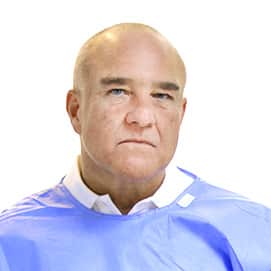Information on the use of contrast agent during MRI (magnetic resonance imaging)
The use of a contrast agent very often helps to obtain additional data. This gentle contrast agent has been specially developed for magnetic resonance therapy. It does not contain iodine and is therefore suitable even for patients who are allergic to X-ray contrast agents containing this substance. But we still exclude the use of a contrast agent when examining pregnant women. Despite all the precautions, in some cases you may still experience a hypersensitive/allergic reaction: nausea, vomiting, itchy skin, rash. These symptoms usually disappear on their own without treatment. Allergic reactions such as inflammation of the mucous membrane of the larynx, vascular collapse and respiratory failure are extremely rare. However, we are prepared for such reactions and in extreme cases we will immediately provide the necessary assistance. As a rule, such reactions appear immediately after the administration of the contrast agent, but they can also occur later, for example, the next day. In this case, you can contact us or your doctor.
24 hours after administration, the contrast agent is excreted by the kidneys from the body.
Contraindications against MRI examination
There are contraindications in which the study of the patient using MRI is unacceptable. This
- artificial pacemakers (for example, heart, bladder): they can be damaged by magnetic fields. In the presence of an artificial heart valve, depending on its type, the study is permissible.
- implanted insulin or pain pumps
- a recently implanted artificial joint (with long-implanted titanium prostheses, an MRI examination can be performed without any risk, except in cases where the joint itself is to be examined).
- metal vessel clips
- nerve stimulants
- cochlear implant
- old middle ear implants (Teflon or gold implants are not contraindicated for examination)
- magnetic dentures
- fragment of a grenade near the vessel
- operation of a cerebral aneurysm using a magnetized clip
- early pregnancy (first 3 months)
Information on the use of contrast media for CT (computed tomography) scans
In order to obtain valuable additional information, especially in the study of the brain, lungs and abdominal organs, it is necessary to use a contrast agent containing iodine. This remedy is injected into the body intravenously, as a result of which a feeling of warmth or heat may occur. You may also experience a metallic taste in your mouth. These sensations are completely normal and disappear after a few seconds. The contrast agent currently used is generally very well tolerated by patients. However, before the examination, we will discuss with you whether it is worth using a contrast agent in your case. It is not recommended primarily in the following cases:
- with dysfunction of the thyroid gland (increased function)
- while taking a medication for diabetes mellitus, which includes metform
- with impaired renal function
- if you are allergic to contrast media or other types of allergies
- with observed manifestations of plasmacytoma;
as well as in the examination of the following patients:
- nursing mothers
- children and teenagers
Despite careful precautions, in rare cases, hypersensitive or mild allergic reactions may occur - such as nausea with vomiting or itching caused by a rash - which quickly resolve on their own without special treatment. As a rule, such reactions appear immediately after the administration of the contrast agent, but they can also occur later, for example, the next day. In this case, you can contact us or your doctor. In very rare cases, severe allergic reactions such as respiratory failure, convulsions, inflammation of the laryngeal mucosa, vascular collapse or shock may occur; in some circumstances they can be life-threatening and require urgent medical attention. However, we are prepared for such reactions and in extreme cases we will immediately provide the necessary assistance. This contrast agent is excreted from the body by the kidneys, so after an examination with its use, to speed up this process, we recommend that you drink plenty of fluids (water, juices).
Contraindications against CT
- Patients who are pregnant














